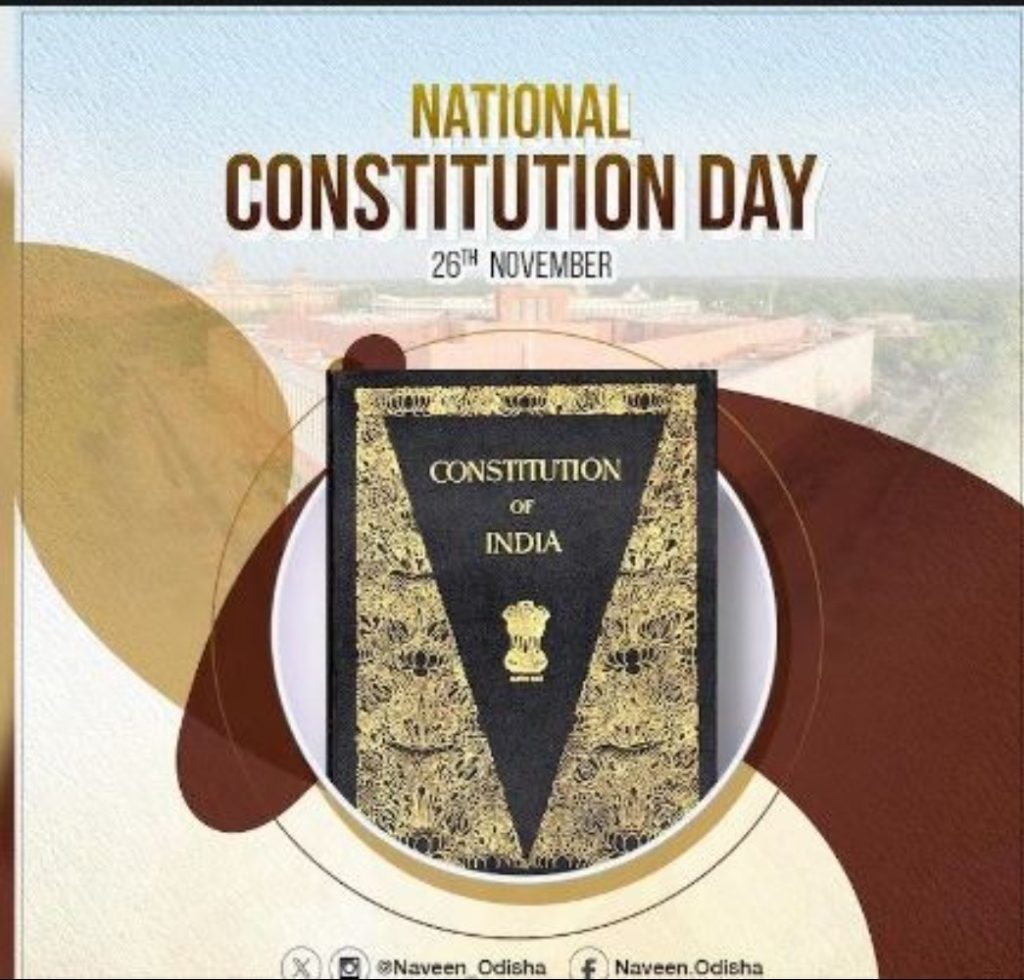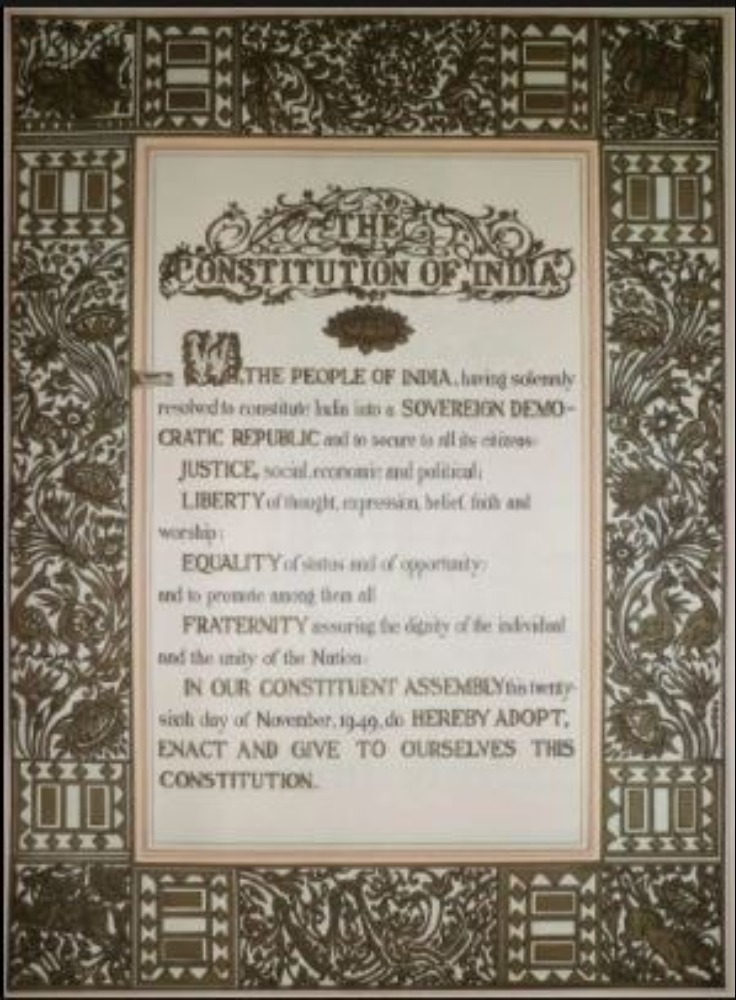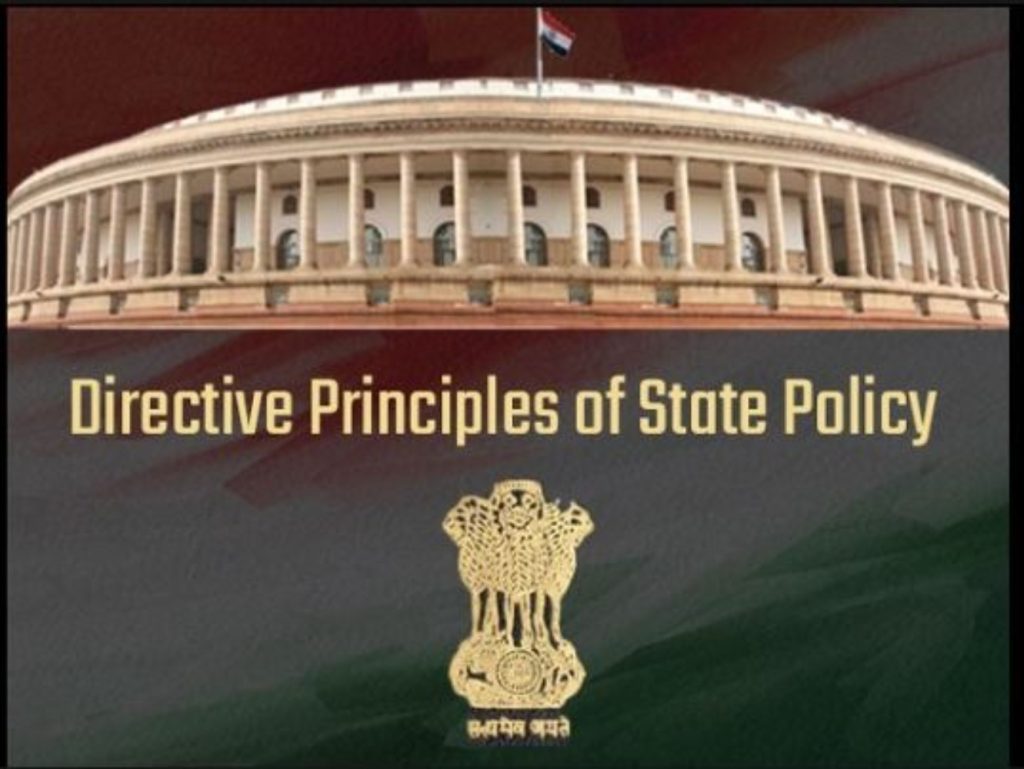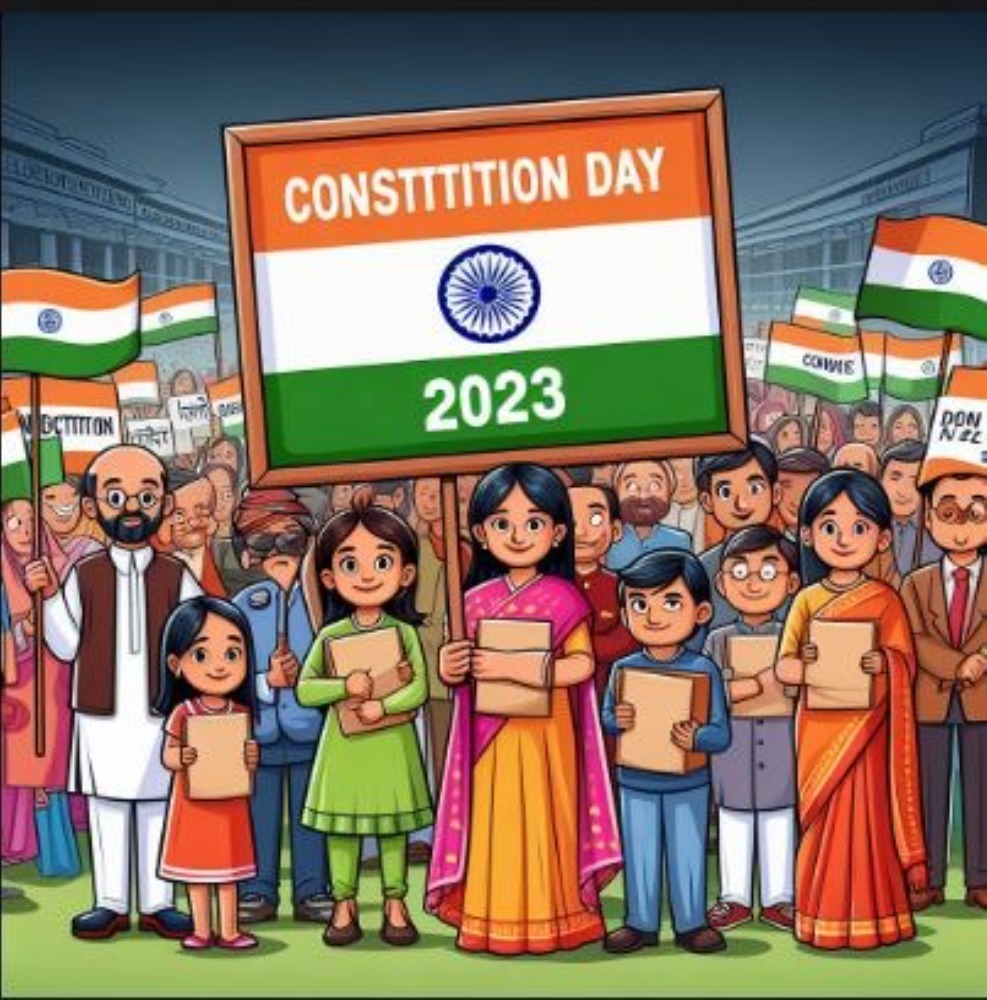Devanjana Mukherjee, Khabri Media
Constitution Day is not just a day to mark the adoption of the Constitution; it is an invitation to delve into its pages and understand the principles that govern our nation.

Pic: Social Media
Constitution Day, also known as Samvidhan Divas, is a momentous occasion in India celebrated on the 26th of November each year. This day holds immense significance as it commemorates the adoption of the Indian Constitution in 1949, which came into effect on January 26, 1950. To subscribe please click tau.id/2iy6f and access our live channel.
MUST READ: UN Climate Summit in UAE
Dr. Bhim Rao Ambedkar, who was the chairman of the Drafting Committee of the Constituent Assembly played a vital role in the drafting of the Constitution. Previously this day was celebrated as Law Day. In 2015 the government modified Law Day in the gazette notification and it has been called Constitution Day.
Recognising the significance of this day, the Ministry of Social Justice and Empowerment, on November 19, 2015, declared the 26th of November as Constitution Day to foster an understanding of constitutional values among citizens. As we observe National Constitution Day in 2023, it is an opportune time to reflect on the fundamental rights and laws that shape the bedrock of our nation.
Know Your Preamble
The Preamble to the Constitution is not just a few lines; it encapsulates the essence and vision of the framers of the Constitution. It begins with “We, the people of India,” emphasizing the democratic nature of our nation. It outlines justice, liberty, equality, and fraternity as the pillars on which the Indian Constitution stands. Every Indian should take a moment on Constitution Day to read and understand the Preamble, as it reflects the aspirations and ideals that guide our nation.

Pic: Social Media
Know Your Rights
One of the cornerstone achievements of the Indian Constitution is the inclusion of Fundamental Rights which are enshrined in Part III of the Constitution. It empowers citizens to approach the courts for the enforcement of their fundamental rights, ensuring that justice is not a distant ideal but a tangible reality.
- The right to equality prohibits discrimination on grounds of religion, race, caste, sex, or place of birth. It ensures equal opportunities and protection under the law.
- The right to freedom encompasses freedom of speech and expression, freedom of assembly, association, and movement.
- The right against exploitation prohibits human trafficking, forced labor, and child labor, aiming to create a society free from these social evils.
- The right to freedom of religion guarantees individuals the freedom to practice and propagate any religion of their choice, fostering a spirit of religious harmony and tolerance.
- Cultural and educational rights recognize the importance of preserving and promoting diverse cultures and languages.
- These rights ensure that minorities have the freedom to establish and administer educational institutions that preserve their cultural heritage.
- The right to constitutional remedies is often considered the heart and soul of the Fundamental Rights.
- Protected as an intrinsic part of the right to life and personal liberty, the right to privacy shields individuals from interference by both State and non-state actors.
- The Right to Information Act (RTI Act) in India grants every citizen the valuable right to seek information from any public authority.
- One of the primary and foundational laws that every Indian should be acquainted with emphasises that the police are never off duty. This statement is rooted in the historic Police Act of 1861.
- In accordance with Section 4 of the Maternity Benefit Act of 1961, it is explicitly stated that a pregnant woman is protected from termination.
- The Gas Cylinder Rules of 2004 and the Explosives Act of 1884 offer crucial provisions. In case of an explosion, individuals can claim insurance up to Rs. 40 lakhs under these regulations.
- Under the Consumer Protection Act of 1956, customers in India have the right to file a complaint against shopkeepers who charge more than the specified Maximum Retail Price (MRP).
- The Legal Metrology Act of 2009 further strengthens consumer protection by imposing penalties on shopkeepers found guilty of selling products above the MRP.
- Section 46(4) of the Code of Criminal Procedure, 1973, explicitly states that no woman shall be arrested by any male police officer after sunset and before sunrise.
Principles of State Policy
The Directive Principles emphasize securing a social order that promotes the welfare of the people, social and economic justice, and the eradication of poverty and inequality.

Pic: Social Media
They urge the state to take steps to secure the right to work, education, and public assistance, ensuring a dignified life for every citizen.
Enshrined in Part IV of the Constitution, guide the state in creating a just and humane society. These principles are not enforceable by the courts but are fundamental in the governance of the country.
Know Your Responsibilties
Alongside rights, the Constitution also outlines the responsibilities of citizens. Citizenship in India is a combination of birth, descent, registration, and naturalization. It is crucial for every citizen to be aware of their rights and duties.
The Fundamental Duties, incorporated through the 42nd Amendment in 1976, outline the ethical and moral obligations that every citizen should uphold towards the nation.
These duties include respecting the Constitution, promoting harmony and the spirit of common brotherhood, protecting the sovereignty, unity, and integrity of the country, and striving towards excellence in all spheres of individual and collective activity.
Conclusion
Fundamental rights, Directive Principles of State Policy, citizenship, and fundamental duties collectively form the tapestry of our constitutional framework. As we celebrate Constitution Day 2023, let us renew our commitment to upholding the values enshrined in our Constitution, ensuring a just, inclusive, and progressive India for generations to come.




